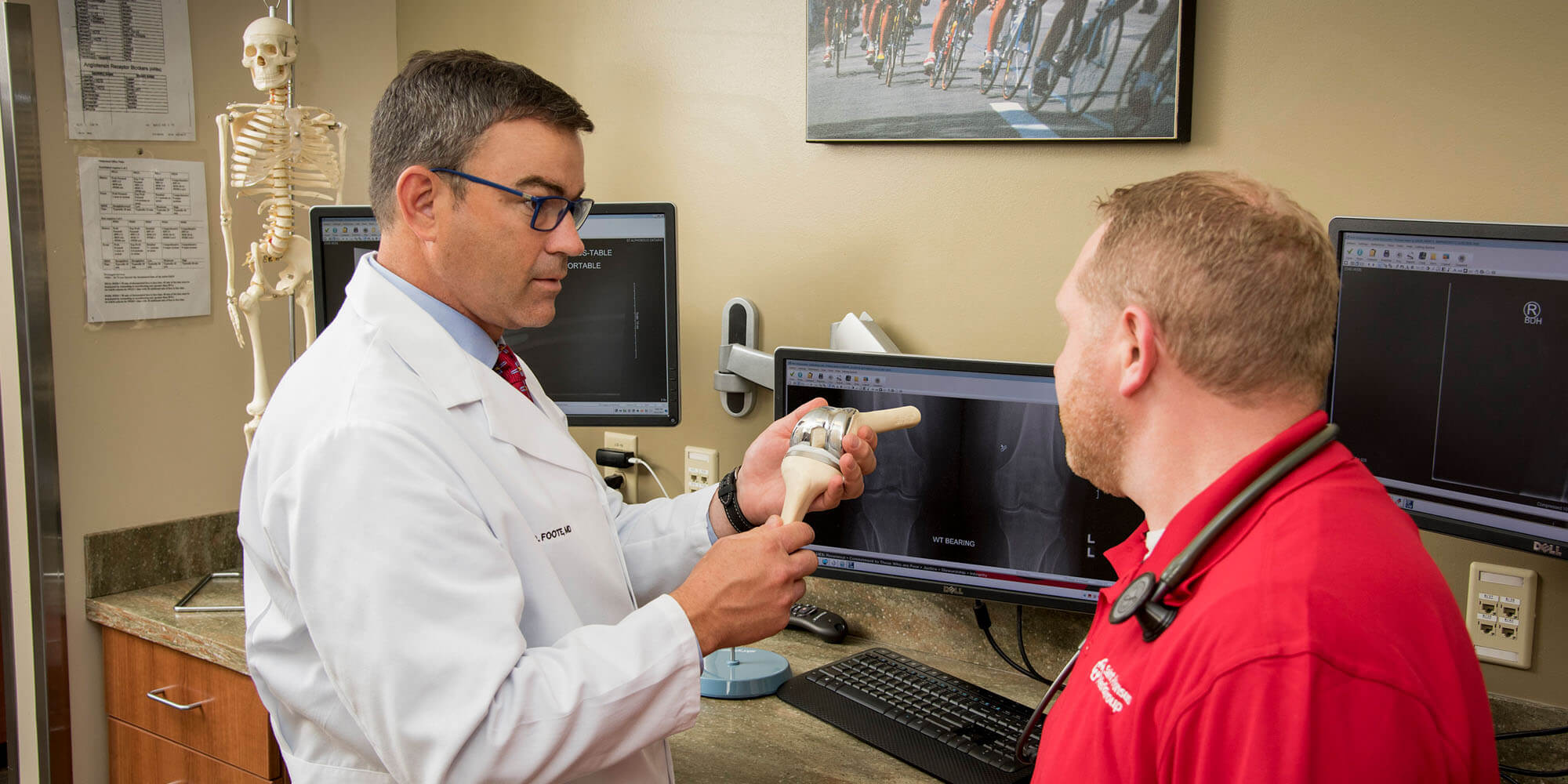Knee Replacement FAQ
What is knee replacement?
Knee replacement surgery involves removing or resurfacing parts of the thighbone, shinbone or kneecap and putting in a prosthesis made of metal and plastic to cover raw, arthritic bone ends. It replaces cartilage that has worn away over the years. Knee replacement can help relieve pain and restore normal activity that may have been abandoned when pain became to great. It may also be able to help straighten legs that, over the years, may have become bow-legged or knock-kneed.
Who should have a knee replacement?
When severe pain limits your everyday activities, such as walking, going up and down stairs and getting in and out of chairs, it may be time to consider knee replacement surgery. Other reasons to consider knee replacement surgery include moderate to severe knee pain while resting, swelling of the knee that remains unchanged with rest and medication or the inability to bend and straighten the knee.
Is there an alternative to knee replacement?
Knee replacement surgery may be recommended only after careful diagnosis of individual joint problems. Other treatment options can include medications, injections, physical therapy or other types of surgeries.
Should my knee replacement be cemented?
Knee replacements may be successfully performed with all cemented components, as well as with a combination of uncemented and cemented components, as determined by the surgeon.
How long is the hospital stay?
Most knee replacement patients begin walking and knee movement the day after surgery. It is important to begin moving after surgery to re-establish blood flow. This helps to prevent blood clots and swelling from forming in your legs, which can occur from lack of activity. With the structured program in the Saint Alphonsus Joint Care Center, most patients with knee replacements are ready to go home or to an out-patient rehabilitation center in three days.
How long is recuperation?
Recovery varies with each person. Most patients need a walker, crutches or a cane for three to six weeks, resume normal light activities of daily living, including driving, in three to six weeks and experience complete recovery within three to six months.
Are there complications?
As with any surgery, there is a risk of complications after hip replacement surgery. However, they are relatively rare. Blood clots are the most common complication after surgery. Every measure is taken to prevent blood clots from forming in your legs, including special support hose, inflatable leg coverings and blood thinners.
What about pain?
Thanks to advances in medication technology and the in-patient pain team at Saint Alphonsus, we are able to keep you relatively comfortable after surgery.
For more information on knee replacement surgery at Saint Alphonsus, please call 208-367-7015.

